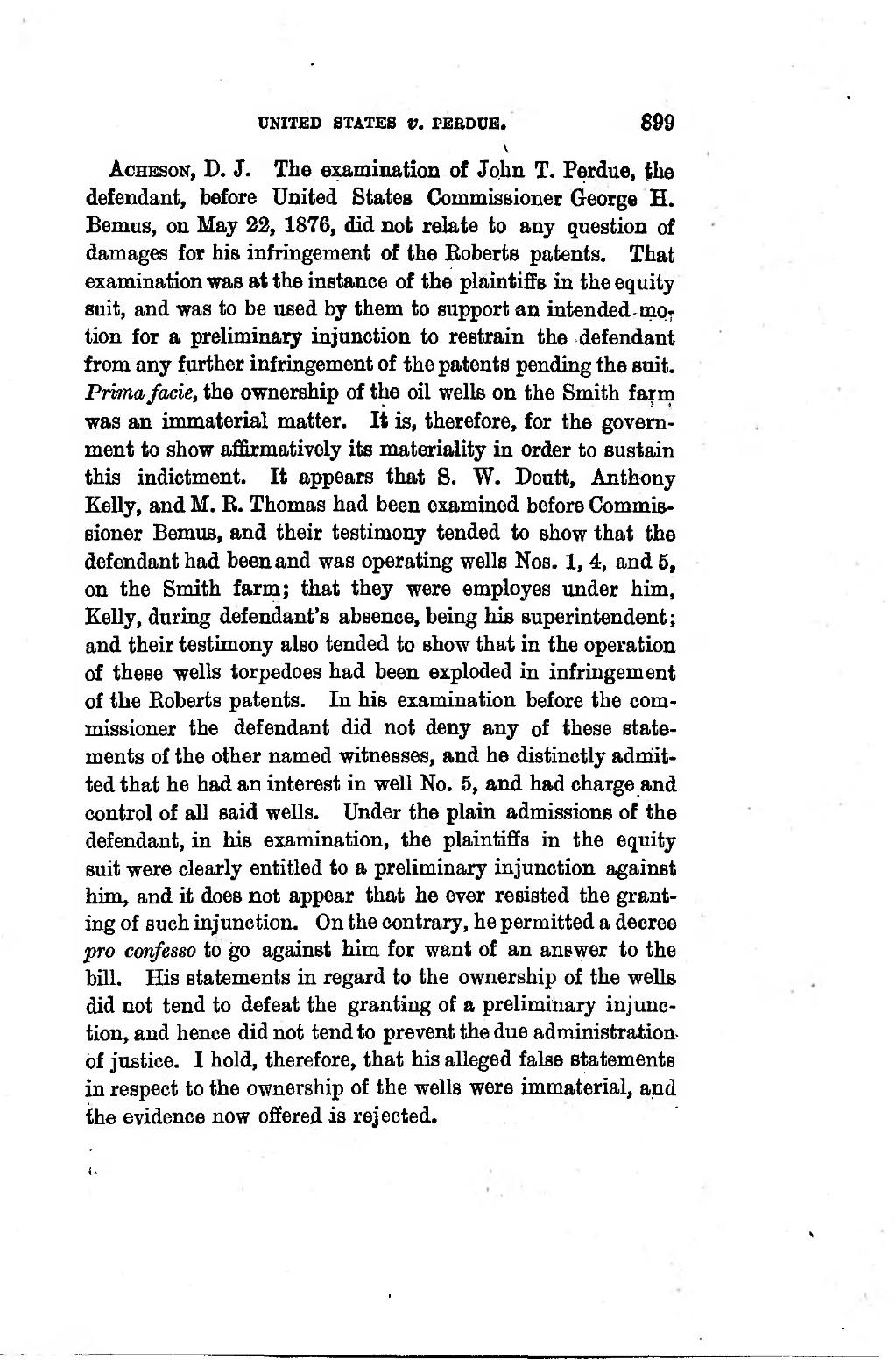UNITED STATES V. FEfiDUB. 899 �AcHEsoN, D. J. The examination of John T. Perdue, ihe defendant, before United States Commissioner George H. Bemus, on May 23, 1876, did not relate to any question of damages for his infringement of the Boberts patents. That examination was at the instance of the plaintiffs in the equity suit, and was to be used by them to support an intended- mo- tion for a preliminary injunction to restrain the defendant f rom any further infringement of the patents pending the suit. Prima fade, the ownership of the oil wells on the Smith farm was an immaterial matter. It is, therefore, for the govern- ment to show affirmatively its materiality in order to sustain this indictment. It appears that 8. W. Doutt, Anthony Kelly, and M. E. Thomas had been examined before Commis- sioner Bemus, and their testimony tended to show that the defendant had been and was operating wells Nos. 1, 4, and 5, on the Smith farm; that they were employes under him, KeUy, during def endant's absence, being his superintendant ; and their testimony also tended to show that in the operation of these wells torpedoes had been exploded in infringement of the Eoberts patents. In his examination before the com- missioner the defendant did not deny any of these state- ments of the other named witnesses, and he distinctly admit- tedthat he had an interest in well No. 5, and had charge and control of ail said wells. Under the plain admissions of the defendant, in his examination, the plaintiffs in the equity suit were clearly entitled to a preliminary injunction against him, and it does not appear that he ever resisted the grant- ing of such injunction. On the contrary, he permitted a decree pro confessa to go against him for want of an answer to the bill. His statements in regard to the ownership of the wells did not tend to defeat the granting of a preliminary injunc- tion, and hence did not tend to prevent the due administration of justice. I hold, therefore, that his alleged false statements in respect to the ownership of the wells were immaterial, and the evidence now offered is rejected. ����
Page:Federal Reporter, 1st Series, Volume 4.djvu/913
This page needs to be proofread.
